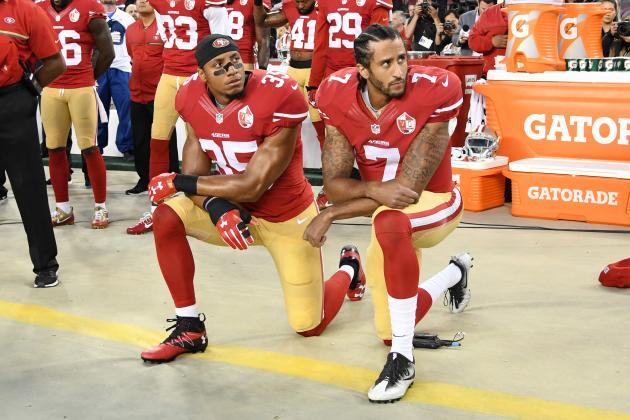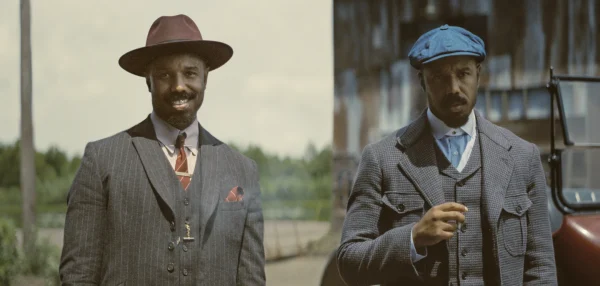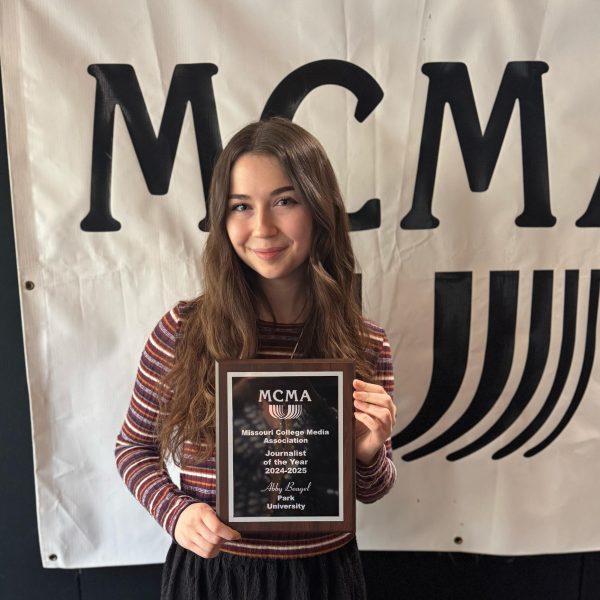Occupation discrimination: the newest prejudice
In August 2016, Colin Kaepernick, an NFL quarterback for the San Francisco 49ers, made the bold decision to kneel down during the national anthem to protest police brutality against African Americans.
“I am not going to stand up to show pride in a flag for a country that oppresses black people and people of color,” Kaepernick said, via NFL.com. “To me, this is bigger than football and it would be selfish on my part to look the other way.”
He no longer plays for the NFL.
He kneeled during the anthem because he himself did not feel connected to his country, not because he was trying to get people on his side. In fact, according to Sports Illustrated, since Kaepernick’s kneeling protest, he has not taken on one-on-one interviews because he wants his voice to be about the issue, not him.
“He wants us to listen to his message about oppression and police brutality and justice,” Sports Illustrated stated. “But pay no mind to the messenger.”
During the 2017 Golden Globes, Meryl Streep won the Cecil B. DeMille Award. Instead of using her acceptance speech to thank her fans and loved ones, Streep used this time to discuss her concerns of President Trump.
“There was one performance this year that stunned me…It was that moment when the person asking to sit in the most respected seat in our country imitated a disabled reporter,” Streep said. “When the powerful use their position to bully others, we all lose.”
She received backlash from fans and other celebrities about her speech.
There have been many instances where celebrities speak their mind and support their opinions through public platforms. The question frequently asked is, “Should these celebrities be doing this?” Is it right for a person who is highly influential to be speaking on topics they don’t work in? Many say no.
Gene Simmons, from the rock band KISS, believes celebrities should keep political topics to a minimum because it’s not a part of their job description.
“I think celebrities should basically shut their pie holes and do what they do best — act, sing, tap dance, juggle balls, and all that kind of stuff,” Simmons said during an interview with Fox Business.
Comedian Kevin Hart thinks discussing politics would alienate his audience.
“I don’t want to draw attention to things I don’t have nice things to say about,” Hart said.
Though there are many factors discouraging celebrities voicing their political opinions, people seem to forget the basic argument of why they should.
First of all, celebrities are not an exception to the first amendment. Freedom of speech is a right no American should feel hesitant about. There should never be a circumstance where a person’s freedom is stripped away because of their occupation.
People also forget the fact that, just like everybody else, celebrities are not just their jobs.
Before anybody is a teacher, doctor or journalist, they are humans with thoughts, feelings and emotions, and having a specific occupation will never change that.
A big argument with celebrities expressing their political views is that their status could influence fans’ opinions and open the issue up for discussion. Frankly, there is no better way to respond to this other than: so what?
Celebrities are not obligated to babysit fans and their beliefs.
We also have to ask ourselves what the real risk of talking about these issues is. I can understand the controversy of celebrities using their platform to change people’s minds and get them on their side. But who is to say their argument is unethical? Would it really be such a bad thing for society to discuss political topics that affect each one of us as a citizen? I would think not.
Celebrities have been getting raked over the coals for their personal expression on political issues. Whether they are protesting or making a speech, people have conjured up this unethical and discriminatory rule that because someone is a celebrity, their right to share their thoughts about politics is somehow stripped of them.
As a society, we should not be limiting the voices of Americans who care enough for this country to want to make a difference. Whether they are an actress making billions of dollars a year or a waitress making minimum wage, their existence and contributions are no more or less important. It’s a rare form of discrimination that gently pushes us into a more divided nation.
Your donation will support the student journalists of Park University. Your contribution will allow us to cover our annual website hosting costs, freeing up other funds for equipment, printing and training.








Codee • Sep 23, 2017 at 11:08 pm
Great read! Very interesting topic. I feel many people look past the true reasoning for these actions. It’s very upsetting.